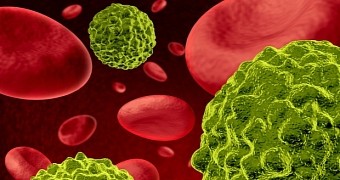In a paper published earlier this week in the journal Science, researchers detail the outcome of a series of experiments during which they administered volunteers personalized cancer vaccines engineered from biologic material extracted from their own tumors.
The specialists behind this investigation explain that, although there were little chances that this would actually happen, the volunteers involved in these experiments all reacted to the vaccine. More precisely, they had an immune response to it.
In the report describing their work, the scientists argue that this clinical trial and its fairly encouraging outcome have the potential to pave the way for the development of new and more effective therapies for people diagnosed with various forms of cancer.
How does one made a vaccine from tumors?
As part of their work, the specialists started by recovering mutated proteins from the tumors of three melanoma patients. They then broke apart these proteins and kept just seven fragments per patient.
Later on, the tumor protein fragments were introduced to immune cells grown in laboratory conditions from the patient's own white blood cells. When coming into contact with the protein fragments, the immune cells recognized them as a threat.
Once inside the study participants' body, the immune cells remembered their lesson and taught their buddies to react negatively to the mutated protein fragments they had previously been exposed to. Simply put, they encouraged an immune response.
The researchers who conducted these experiments say that immune cells trained to respond to the presence of protein fragments originating from cancer tumors were still detectable in the volunteers' body two weeks following inoculation.
Further research is much needed
True, the laboratory-made immune cells exposed to the tumor protein fragments successfully triggered a defensive response when introduced in the body. Still, it is unclear whether this response was strong enough to halt the spread of cancer.
“We don’t really know how strong an immune response has to be to be clinically meaningful,” said Ton Schumacher, a cancer researcher at the Netherlands Cancer Institute in Amsterdam, as cited by Nature.
Besides, it's important to keep in mind that this clinical trial involved just three volunteers, so it might not be all that reliable. Then again, its success can at least be considered proof-of-concept when it comes to ongoing efforts to use tumors to develop personalized cancer therapies.

 14 DAY TRIAL //
14 DAY TRIAL //